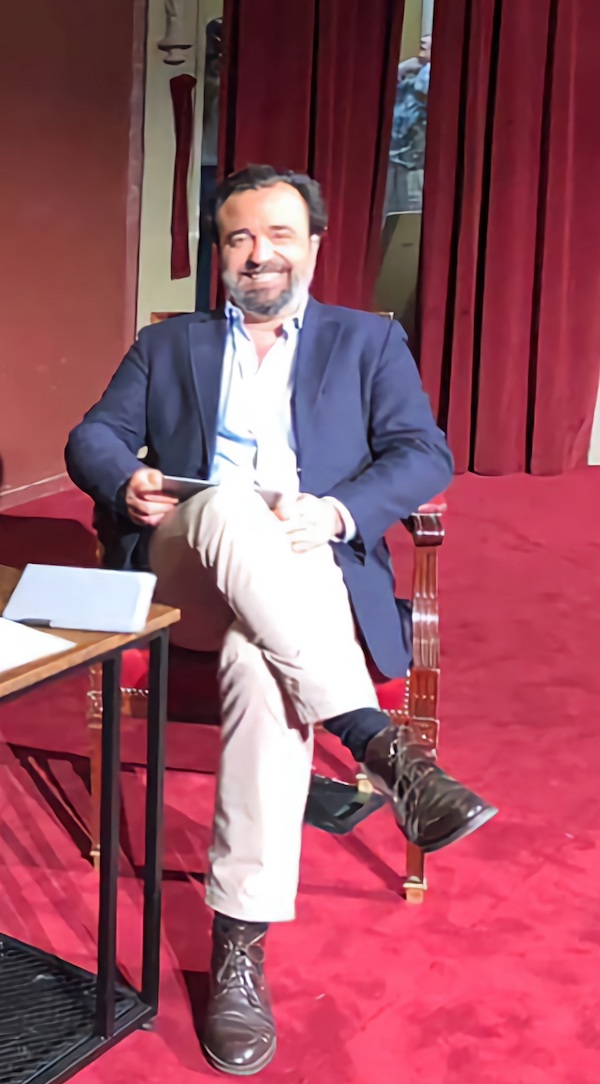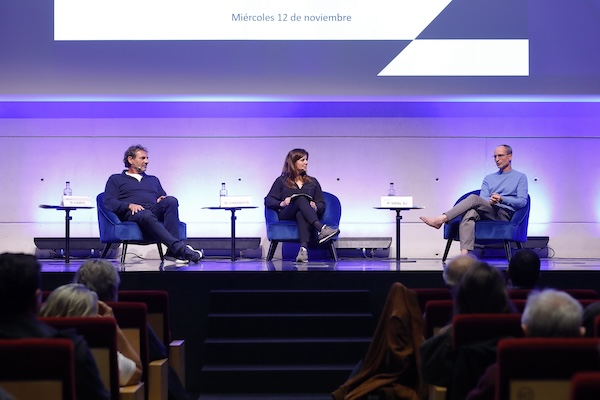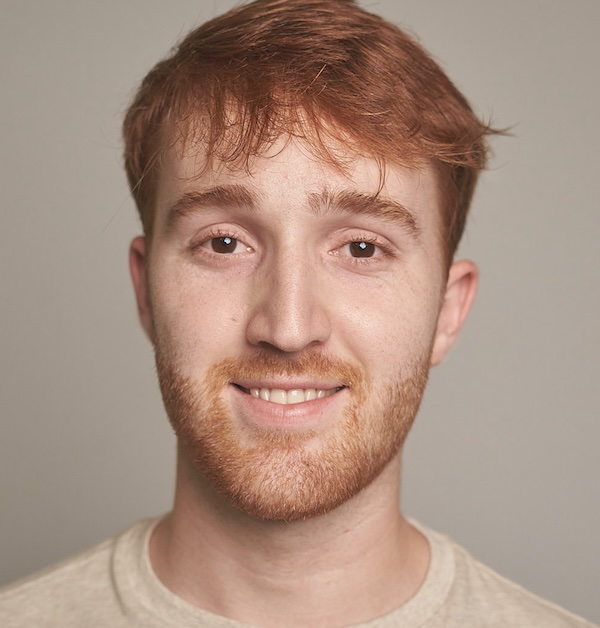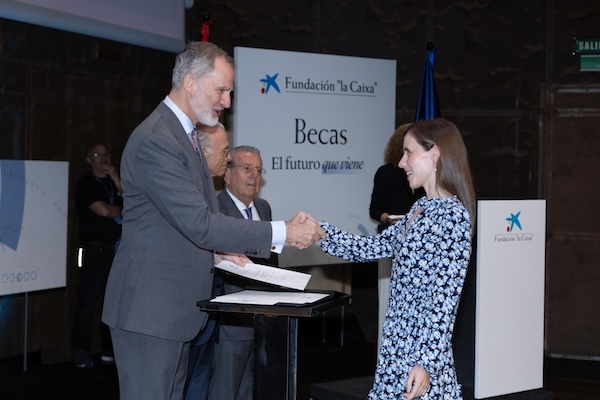After an extensive career at major corporations, Rafael González Ortiz decided to become an entrepreneur. The experience has taught him a lot.
After an extensive career at major corporations, Rafael González Ortiz decided to become an entrepreneur. The experience has taught him a lot. He now wants to continue being involved in new business projects and social initiatives while also fulfilling his responsibilities at the helm of DISITBiotech.
-You are the co-founder and president of the board at DISITBiotech. Tell us about the creation of this company in 2019. What is its mission?

DISITBiotech is a biotechnology R&D company committed to improving quality of life for current and future patients in the areas where we conduct research – mainly oncology.
It is the result of a joint effort undertaken with my friend Javier Dotor de las Herrerías, co-founder and CSO of the company. Javier holds a PhD in Molecular Biology from the University of Navarra and is a leading international expert on the active compound and the therapeutic target that are the focus of DISITBiotech’s research. As a specialist and a generalist, Javier and I are very different in terms of knowledge, training and experience. By joining forces, we are able to complement one another and create synergies.
-Tell us about the Pink Knot Project, which you unveiled last October.
The Pink Knot Project is a social initiative whose main objective is to untie the knot that binds women to breast cancer. One in seven women in the European Union will develop breast cancer over the course of her lifetime. This is a shocking statistic.
One of our fellow creators of the project, María Bayón, is a journalist with a successful career in television. She is also a breast cancer patient. She shared the idea with me. We worked on it and gave it shape. It was clear that the concept fit perfectly with DISITBiotech’s commitment to patients, so we decided to support the project.
Our goal is to grow the Pink Knot Project and transform it into a documentary that, among other things, will help to raise awareness among women about the need for regular check-ups, provide truthful and verified information about the disease, and bring the scientific community into contact with the rest of society.
- These are society-focused projects. What do you see as your purpose?
I am a privileged person and I know it. I was fortunate to be born in Spain, to parents with a higher education, who were comfortable economically – which allowed them to invest in their children’s education.
I believe that this social privilege implies a responsibility to society. In my case, this means that I am determined to dedicate the best years of my professional life to designing, promoting and supporting business and social projects, taking risks and investing the necessary capital, time and effort to maximise their chances of success.
-How can organisations have a greater positive impact on society and the planet?
First and foremost, businesses must be profitable. Without profitability, there is no investment, no competitiveness, no growth, no job creation and lower tax revenues. This impact is the most immediate, the easiest to measure, and the most obvious and evident.
At the same time, conceptually, I believe that an organisation, regardless of its size, should be inspired by the EU Charter of Fundamental Rights and build its own culture with a well-defined CSR policy that generates value at every level.
-How has your past experience as an entrepreneur helped you get where you are today?
I landed in the business world nearly a decade ago with a project that took me to Silicon Valley. It was a project that aimed to improve the health of consumers and reduce food waste. I have been failing with that project for ten years, but I have not yet thrown in the towel. Galistair, a business project launched in 2016, of which I am a founding partner, helped me grow as a professional. I enjoyed great successes and was crushed by the catastrophe of COVID-19. The coronavirus years significantly increased my resilience and drastically reduced my vanity.
“Conceptually, I believe that an organisation, regardless of its size, should be inspired by the EU Charter of Fundamental Rights”
-What is the biggest challenge you have faced as an entrepreneur? What advice would you give to someone who is thinking about becoming an entrepreneur?
I have faced many challenges throughout my career, but without a doubt the COVID-19 crisis for Galistair, a company where I was a founding partner, CFO and member of the management committee, was one of the biggest. Galistair is a commercial airline with one Airbus 321 and two Airbus 320s in its fleet. Every day, we had to make strategic decisions on the basis of risk estimates, always with high levels of uncertainty, and with incomplete or asymmetric information. And this was in a market with no demand.
If you are thinking about becoming an entrepreneur, welcome to the club! You are a brave person and you are very needed. My advice is:
- If you are young, hire senior people to your team. If you are not young, do it anyway.
- Study the market. Segment. Innovate, ideally in a disruptive way. You must always innovate. Even in mature markets such as biotechnology or aviation, there is room for innovation.
- Develop an in-depth understanding of your potential customers, competitors, suppliers and other stakeholders.
- Add as many layers of value to your value proposition as you can.
- Look for potential partners in neighbouring or complementary markets.
- Not every market is digital, scalable or global.
- As an entrepreneur, you first need to sell your project to investors, strategic partners, your team and your suppliers. Of course, you also need to sell your product or service to customers. All of these sales processes require high tolerance for frustration, as well as perseverance and resilience.
- Once you have defined your value proposition and your business plan, if the market and the product allow for it, apply a lean marketing strategy. The market is the only valid judge. It tends to pulverise hypotheses, strategies and value propositions without too much effort. Adapt to the market and discard your hypotheses if the market does not share them.
And by far most importantly: strike a good balance in the risk-return trade-off! Thank you, Carles Torrecilla!
“I have faced many challenges throughout my career, but without a doubt the COVID-19 crisis for Galistair, a company where I was a founding partner, CFO and member of the management committee, was one of the biggest”
-You previously held various management positions at a variety of corporations. What does this experience mean to you?
I spent more than a decade leading the export department of a Spanish company that is present in more than 60 countries and has a very extensive product portfolio with a high level of technological complexity.
More recently, I spent several years as business development manager at a company that manufactures high-value-added heavy-duty oil-hydraulic machinery for the mining industry. In this capacity, I collaborated with major engineering firms in the industry, established alliances and corporate agreements, visited sites in Europe, Africa and Oceania, and made direct sales in incredibly remote places, from the Arctic Circle to the jungles of Laos and the African savannah.
I consider all of these professional and life experiences to be my most valuable and differential asset. I have worked for many years with a wide range of different human beings in the most common and most exotic of places. I have learned from each one of them and from their cultures. It has enriched me both personally and professionally.
Without these experiences and the lifelong learning I committed to when, well into my forties, I enrolled at Esade, I would never have been able to take part in any business project.
- How would you like to see your career evolve?
I want to continue being involved in new business projects and social initiatives while also fulfilling my responsibilities at the helm of DISITBiotech. I will never stop exploring new projects, investing in them, offering them consulting services or leading them.
-How have you benefited from studying at Esade and being a part of the Esade Alumni community?
Esade has given me access to a large contact network. In addition to all of my classmates – a clear example of mutual value creation – the availability of the rest of the network is a guarantee that I will always have the contacts I need to pursue my professional goals.
































